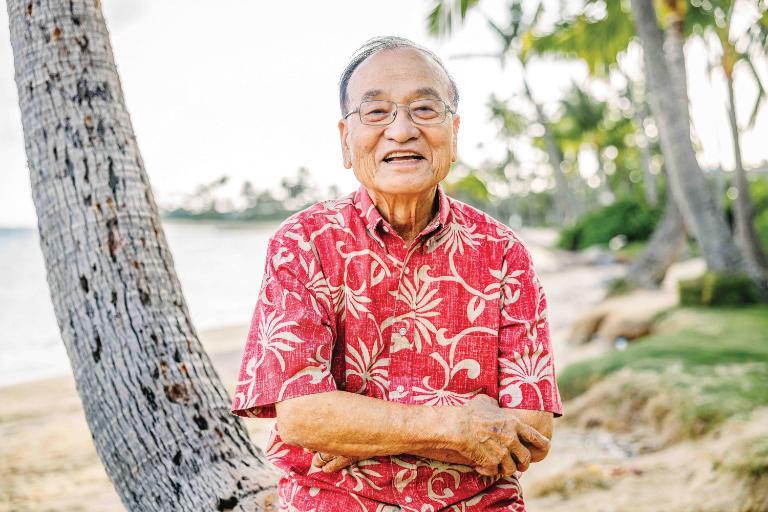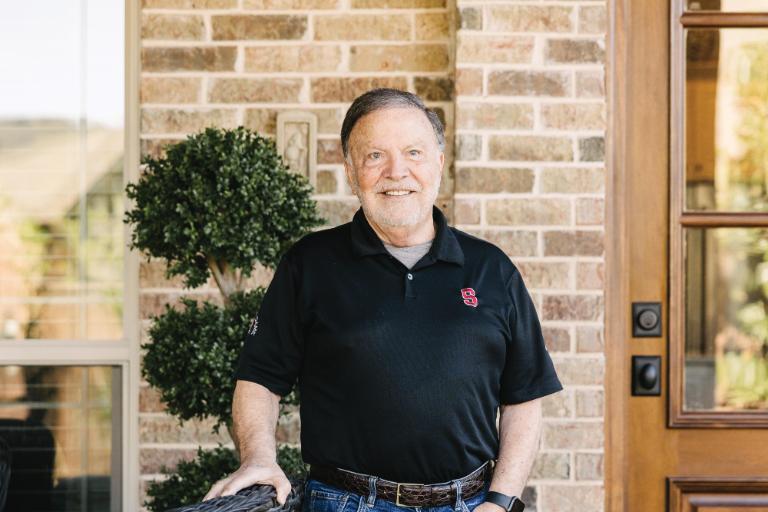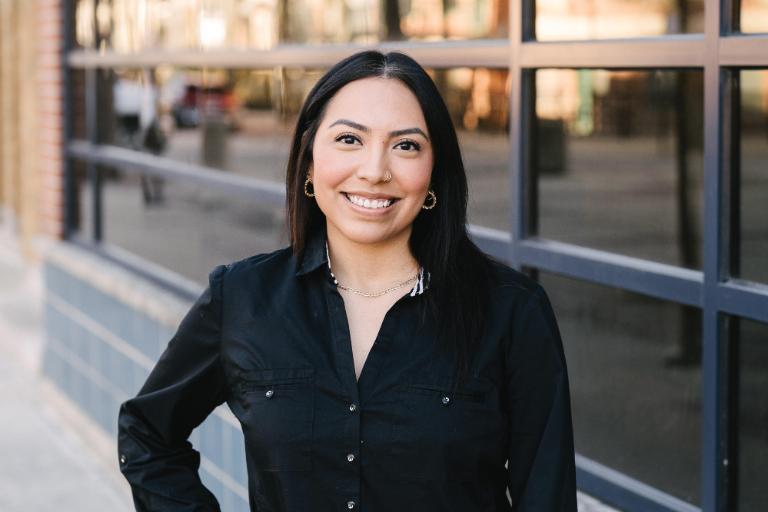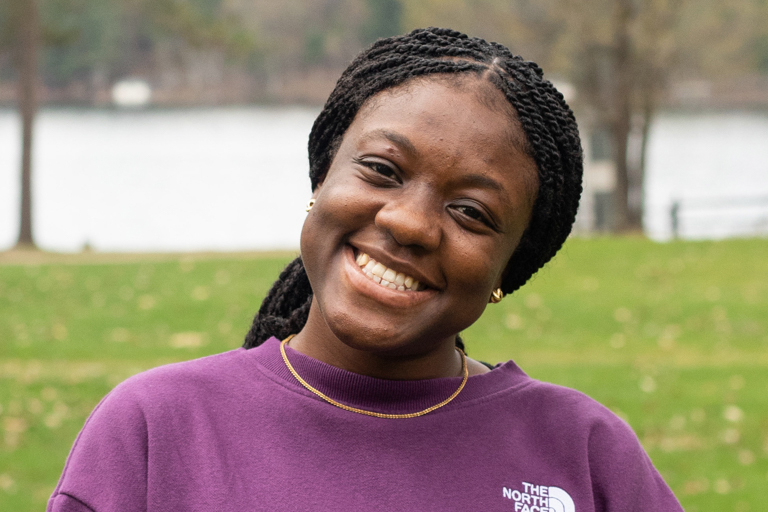Developing Mental Health Resources for the Field
With an advanced degree in clinical and mental health counseling, Madhu Balasubramaniam M.A. ’22 has dedicated her life to bringing holistic healing to victims of human trafficking through International Justice Mission.
Words: Bethany Peterson Lockett ’20

“If we have any ounce of power and influence, let us use that power to serve those who do not have it; in all of that, we’re doing it as an expression of what God has already done.”
Madhu Balasubramaniam M.A. ’22 discovered her life passion—anti-human trafficking—by a providential miracle.
As a teenager, she was home alone one day and picked a movie to watch, not knowing what it was about. As it turned out, the film highlighted the story of a few young children who navigate poverty, abuse, and trafficking on the streets of a Southeast Asian country, where Madhu is from.
As a protected and sheltered young woman from a middle-class family, Madhu was shocked and horrified by the violence she saw on the screen. But the worst part? “This is just a story, but this is a reality here and in other places around the world,” she said. “Children are vulnerable.”
However, at the time, she didn’t see any way to turn this conviction into practice. She had earned a university degree in nutrition and had a steady job. But then something else happened she didn’t expect: She became a Christian.
She began to pray to God, “Why did you create me? What is my purpose?”
One day at church, she saw the beginnings of an answered prayer as she listened to an International Justice Mission (IJM) employee speak. She knew then that this was the opportunity to do the work she’d always felt drawn to. She asked the representative if she could volunteer and was disappointed to discover that IJM did not accept volunteer work. When they offered her a full-time position, Madhu realized, “I want my life to be meaningful and I want to live a life that glorifies God. All of these prayers culminated as it took shape. And every step of the way was important.”
She quit her job in healthcare and accepted IJM’s offer to serve as an executive assistant. As she worked her way through administrative roles, she also began going on rescues, which she described as “adrenaline-pumping kind of stuff,” and eventually she transitioned into full-time field work. For the last nine years, she’s been working with victims of modern-day slavery, especially sex trafficking, through IJM.
Now on the ground in a “red light district,” Madhu’s eyes were opened to the reality of this exhausting work.
“Unfortunately, people who are trained don’t really want to go into these places because it’s hard and the burnout level is very high,” she explained. Although she received training through IJM, she often felt unqualified. The normal strategies that could be employed simply didn’t work with the challenges of her context—most women she worked with not only had experienced trauma, but also had language barriers which severely limited the effectiveness of the tools and resources she could provide them.
Madhu felt that God was drawing her to receive a higher education, not to get out of these districts, but to bring contextualized training back to her home country to serve the people that needed it most.
“The poor deserve the best,” Madhu said, quoting one of her coworkers. “We were poor and God gave us his best; he gave us Christ to die for us. I think that these people deserve the best. They deserve best practices. Just because they are poor does not mean that they deserve sloppy treatment. They deserve God’s best because God really cares about these people.”
Madhu was inspired to apply as a Billy Graham Scholar and pursue a master’s degree in clinical and mental health counseling at the Wheaton College Graduate School. Although it took an extra year for her to arrive in the U.S. due to unexpected delays, Madhu recently graduated and is working toward her permanent licensure with the goal of returning to Southeast Asia and training others to respond to clients with a better understanding of mental health.
“In the field, people are complex, diverse with varying psychological needs,” Madhu said. With her education in clinical counseling, she can help create treatment plans that adapt to each person’s specific mental health requirements.
Recently, Madhu was reading Psalm 69 during her morning devotions, and she was particularly drawn to verse 33. “The text reads, ‘For the Lord hears the poor and does not despise his prisoners,’” she recited, going on to reflect: “Aren’t we all poor? God, in all his power, sent us his best. He didn’t send any random person; he sent his only Son. So as people, if we have any ounce of power and influence, let us use that power to serve those who do not have it; in all of that, we’re doing it as an expression of what he has already done. It’s not about us, but what he has done.”




